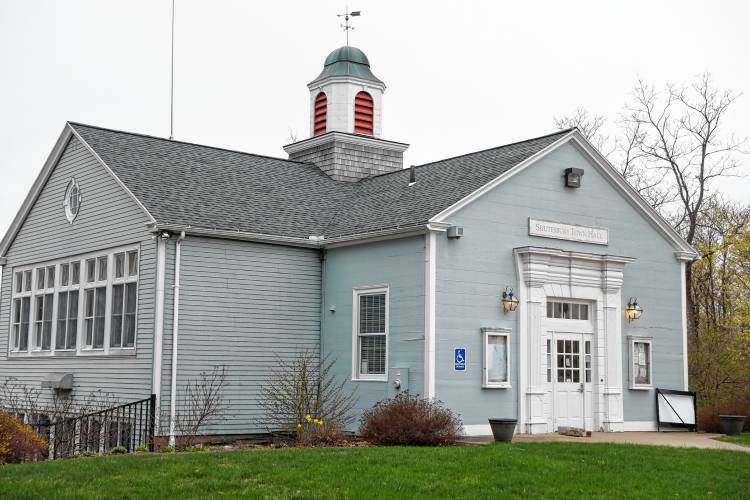State overrules Shutesbury bylaw on battery storage

Shutesbury Town Hall. STAFF FILE PHOTO
| Published: 12-02-2024 5:38 PM |
SHUTESBURY — A general town bylaw creating a licensing process for large-scale battery storage in Shutesbury has been struck down by the state Attorney General’s Office, for both unreasonably regulating renewable energy and improperly regulating zoning matters.
The ruling on Shutesbury’s bylaw is nearly identical to the attorney general’s rejection of a Wendell bylaw, also adopted last spring, with the state office contending that the town failed to abide by procedural safeguards embedded into state zoning laws.
The Nov. 25 communication to Shutesbury Town Clerk Grace Bannasch from Assistant Attorney General Nicole Caprioli cites that energy storage systems, or ESS, like other solar uses, are protected under Massachusetts General Law Chapter 40A, Section 3, and that efforts to prohibit, limit and set requirements for their construction and operation through a general bylaw isn’t appropriate.
“The town’s general licensing bylaw attempts to impose extensive regulations on the construction and operation of ESS, including a complete prohibition under the general bylaws of any ESS over 10 megawatts,” Caprioli writes. “Certain requirements could potentially be an unreasonable regulation in violation of Section 3’s zoning protections, even if they were properly adopted as a zoning bylaw.”
The bylaw was adopted at Annual Town Meeting in April as Article 26, with a majority of residents in attendance, after extensive discussion. The bylaw, as it was passed at Town Meeting, would have allowed small-scale energy storage systems with a net generation capacity of less than 1 megawatt by right, while systems with a capacity between 1 and 10 megawatts would need approval from a new seven-member licensing board created in the bylaw. Energy storage systems with a net generation capacity greater than 10 megawatts would be prohibited.
Planning Board member Michael DeChiara said the attorney general’s reasoning for striking down Shutesbury’s general bylaw was similar to why Wendell’s was also rejected. DeChiara said it will be up to the Selectboard to respond, since general bylaws are under its purview.
Caprioli wrote that the town’s general bylaw also doesn’t supplement the regulation of a use already governed by the zoning bylaws.
“Rather, the general bylaw seeks to impose extensive regulations, including prohibitions on ESS over a certain size or ‘ground alterations’ of the ESS within 200 feet from drinking water wells, despite the use being otherwise allowed under the zoning bylaws without these siting requirements,” Caprioli writes. “Further supporting the conclusion that the general bylaw provisions intend to regulate zoning matters.”
Article continues after...
Yesterday's Most Read Articles
Scott Merzbach can be reached at smerzbach@gazettenet.com.






 ‘It’s a Wonderful Night in Turners Falls’ showcases village businesses, nonprofits
‘It’s a Wonderful Night in Turners Falls’ showcases village businesses, nonprofits Sackrey Construction Co. of Sunderland celebrating 35 years in business
Sackrey Construction Co. of Sunderland celebrating 35 years in business Photo: As darkness falls
Photo: As darkness falls Leverett residents rap Kittredge compound plans, urge caution as negotiations for 400 homes move forward
Leverett residents rap Kittredge compound plans, urge caution as negotiations for 400 homes move forward 
